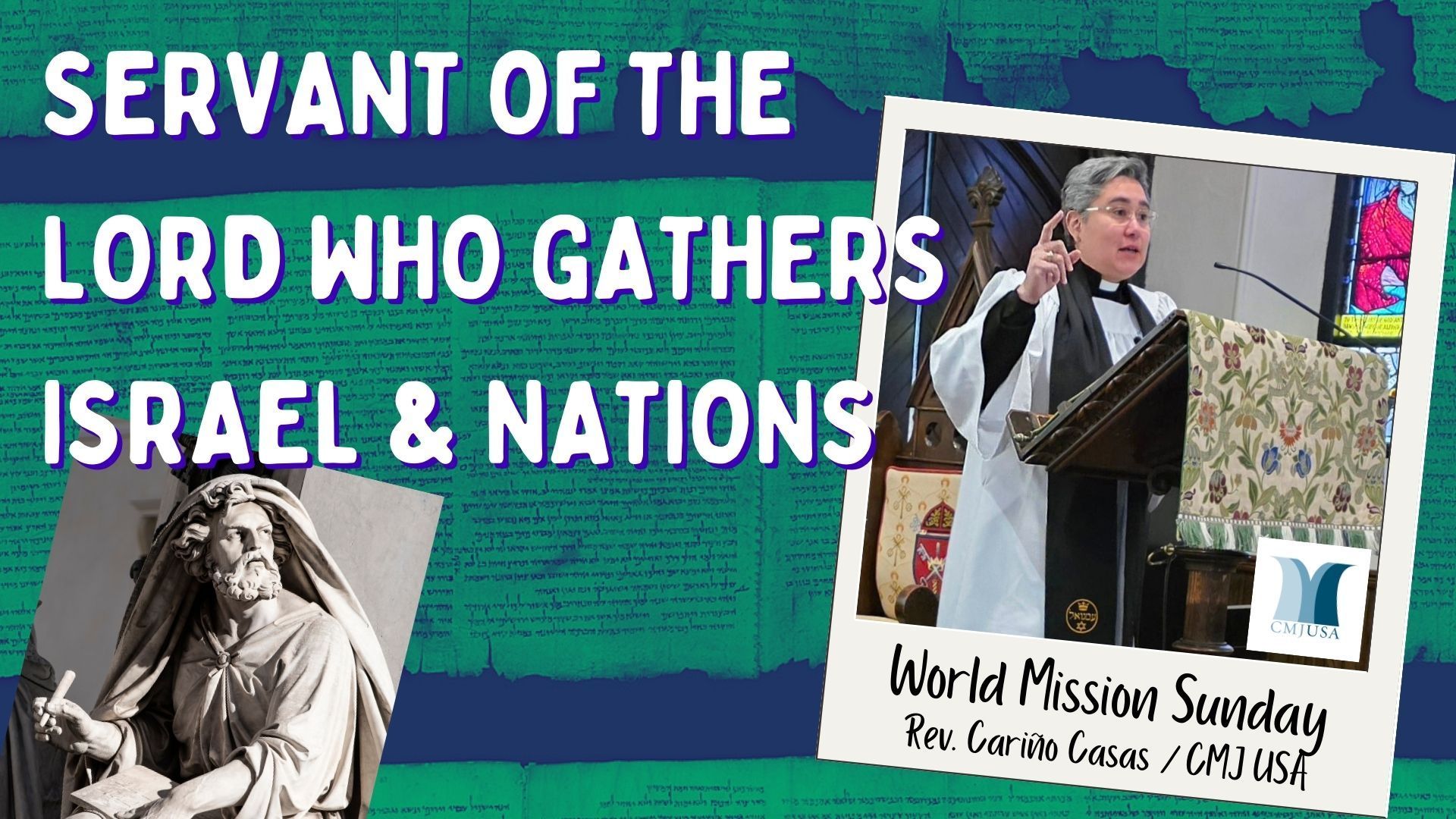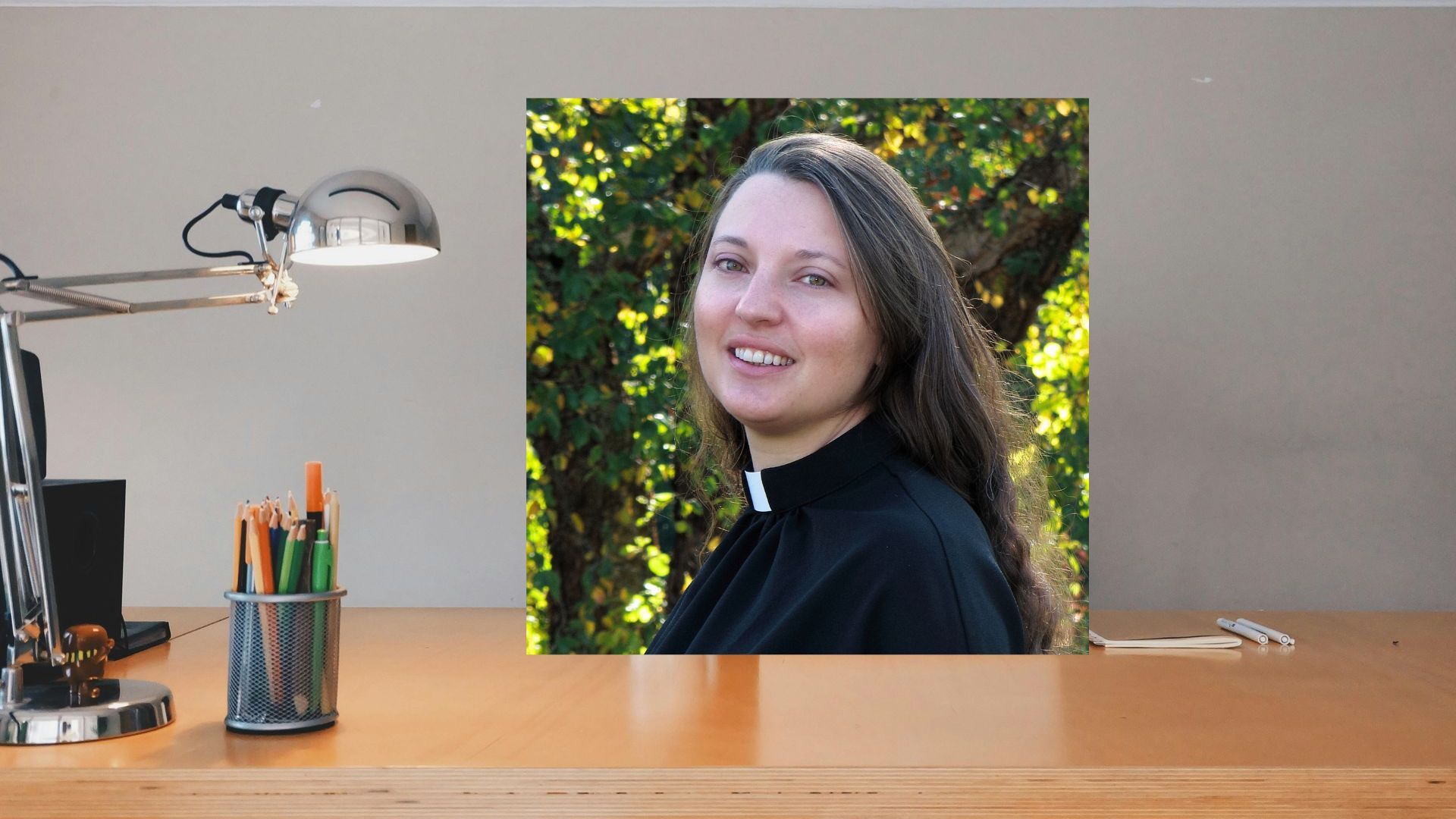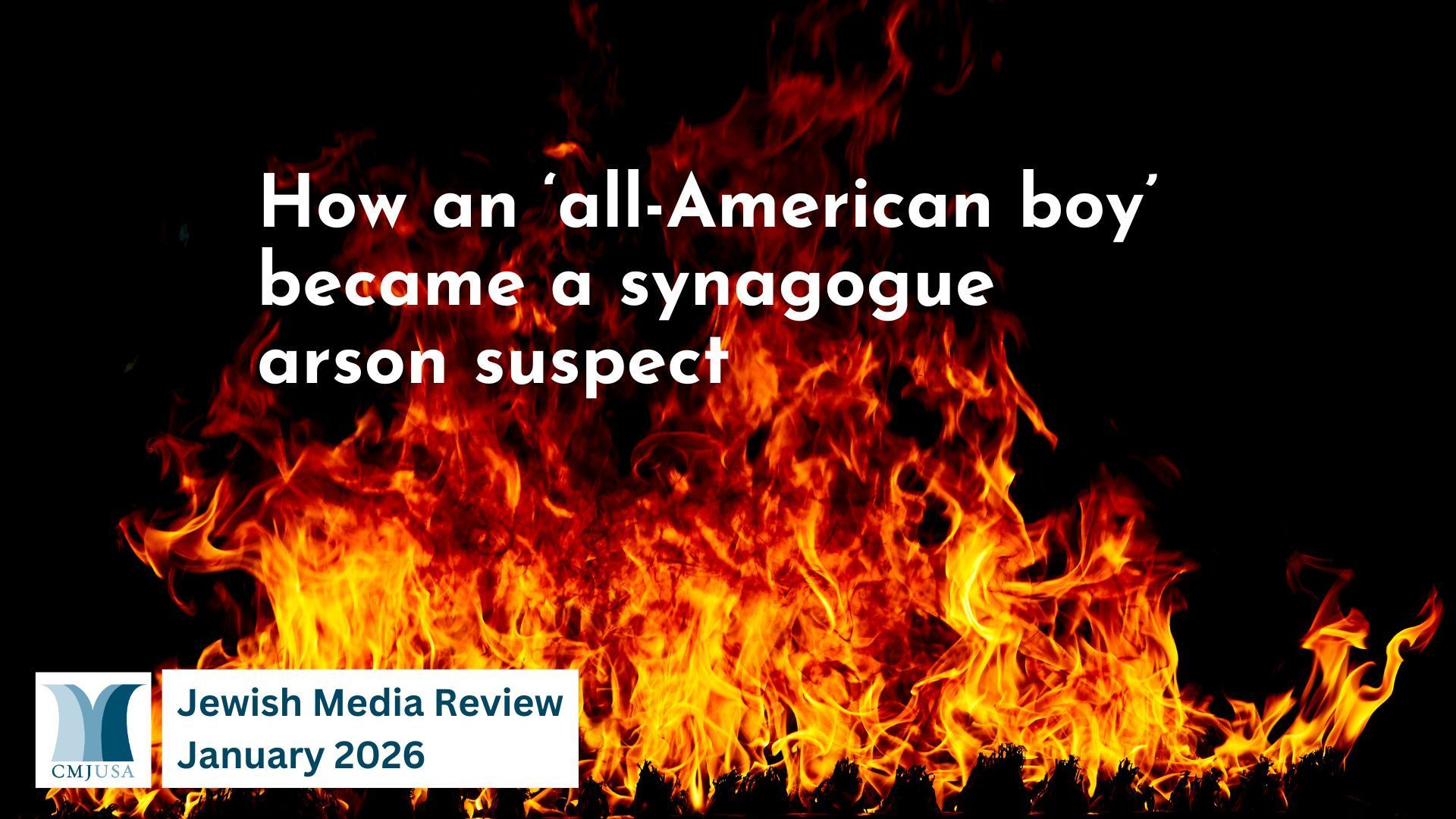Is supersessionism really a cause of antisemitism?
A view from South Africa
A summary of an academic paper titled “The Rejection of Supersessionism as an Important Component for South African Christian Opposition of Antisemitism.” Supersessionism is sometimes called replacement theology. Download the original paper.
Antisemitism is rising around the world. This paper gives us a view from South Africa. The opinions expressed are not necessarily those of CMJ USA.
The terms “Jew” and “Israel” evoke different reactions from different people. These range from warm feelings to hostility to indifference. There are those given to certain conspiracy theories who believe that a Jewish global cabal are pulling all the economic and political strings, working to execute their new world order. Some of those theorists label this conspiracy as Zionism. Zionism is also opposed by those who believe it is a colonial occupation of the land formerly known as Palestine. Too often Zionism is mixed with antisemitic tropes and expressions of hate towards Jewish people. The actions of the State of Israel become pretexts by which Jewish property is defaced, and Jews are attacked and vilified. What causes antisemitism, and in what ways have Christians contributed to the growth of antisemitism? In many ways, the roots of Christian antisemitism lie in supersessionism, which is the belief that Israel’s status as God’s chosen nation has been transferred to the Church. As R Kendall Soulen demonstrates in his book “The God of Israel and Christian Theology”, there are three models of supersessionism.
The first model of supersessionism is economic supersessionism. This states that nation of Israel was once loved and chosen before Christ came but now that Christ has come, Israel has lost their elect status. The second model of supersessionism is punitive supersessionism. This argues that the Jews rejected Christ and therefore will always be under judgement. When those who hold to punitive supersessionism speak of Jews, many will charge them with killing Christ, and therefore, deicide. If you visit social media, you may well come across a response of certain Christians to pro-Israel and pro-Jewish posts defaming Jews with such incendiary terms. The third model of supersessionism is structural supersessionism. By this Soulen means that the New Testament is taken as replacing the Old Testament. The violent reaction of some Christians against pro-Israel and pro-Jewish statements highlights the complexity of the issue of antisemitism.
There are those who are critical of the State of Israel’s actions and oppose certain policies, but they do not necessarily believe that Israel should cease to exist as a state in the Middle East. Criticism against Donald Trump’s economic policies, or the terms of Joe Biden or Barack Obama does not mean that that such criticism advocates the annihilation of the United States of America. However, there are those who criticise Israel’s actions as a pretext for their opposition of Israel’s existence. When Israel sent their troops into Gaza, following the attack of the 7 October, Israel was denounced by many in international media. Such critics were responded to with the argument that Israel’s response was justified, due to the atrocities committed by Hamas and their capture of hostages. Yet these critics of Israel responded by stating that the real problem was Israel’s “occupation” of the land. When such critics are asked what part of the land Israel is occupying, it is telling when they define it as all the land between the Jordan and the Mediterranean Sea. This kind of response reveals that the issue is not primarily what Israel does in Gaza. The biggest crime that Israel commits is her own refusal to commit political suicide and cease to exist.
But the most alarming issue for Christians who believe that Jews are still God’s chosen people is the rise of antisemitism in the world. Ordinary Jews, who are not Israeli citizens, are attacked and people brazenly voice antisemitic rhetoric against them. This is especially alarming considering the history of Christian antisemitism throughout the common era. One only has to read books like Edward Flannery’s “The Anguish of the Jew: Twenty-Three Centuries of Antisemitism” (Paulist Press) and Colin Barnes’ book “They Conspire Against Your People: The European Churches and the Holocaust” (Kings Divinity Press) to see how much antisemitism was perpetuated in the name of Jesus, which directly contributed to the Holocaust. Thus, when those who own the name of “Christian” express contempt for Jewish people, even under the pretext of antizionism, it highlights the danger of history repeating itself.
South Africa is a country that has had its own history of antisemitism and since October 7, 2023, there was an increase in antisemitic incidents documented by the South African Jewish Board of Deputies. How should Christians respond to such antisemitic tropes and why do so many Christians seem indifferent to the plight of Jewish people? This year (2025) I co-authored an article published in the South African Baptist Journal of Theology (vol. 34 Issue 1) entitled “The Rejection of Supersessionism as an Important Component for South African Christian Opposition of Antisemitism”. I wrote this article as a requirement for my master’s thesis with the Baptist Theological College of Southern Africa. My thesis was “Towards Demonstrating the Unity of Scripture: Israel as a Biblical Theological Theme Using a Synchronic Approach to the Present Majority Canon.” The whole thesis was an investigation into the various theologies of the Scriptural books and what they progressively revealed concerning the theme of Israel. The hermeneutic was a grammatical historical hermeneutic that covered all 66 books of the evangelical canon. Through a synthesis of the canonical witness, I advocated a view of Israel that fell between progressive covenantalism and progressive dispensationalism. Progressive covenantalism argues that the Church is the new Israel in distinction to the Israel of the Old Testament. Progressive dispensationalism, on the other hand, argues that Israel and the Church are distinct entities who together comprise the one people of God.
If the majority of Christians in Nazi Europe had believed in the ongoing elect status and future salvation of the Jewish people, as Karl Barth and Dietrich Bonhoeffer argued, they would have more likely opposed Nazi policies against Jewish people. The Holocaust is the perfect test case because this context saw antisemitism as the pervasive culture, which was enacted in government policy. If people believed in punitive supersessionism they would not likely endanger their lives for the sake of Jews who are cursed by God and guilty of killing Christ.
I submitted that publishable article on the 20 September 2023, but at my supervisor’s, Prof. Piff Pereira, suggestion, I reworked the paper to address South African antisemitism since the Hamas’s horrific and barbaric attack on Israeli citizens on October 7.
I began by looking at “Present Antisemitism and the Emergence of Religious Antisemitism” noting some of the brutalities committed by Hamas and subsequent increase in antisemitic incidents.
Between 07-23 October 2023, there was a 388% increase in antisemitic incidents of ‘harassment, vandalism, and/or assault compared to that same period in 2022’ (Tanyos 2023). There was a 1000% increase in violent antisemitic and anti-Israel messaging on Telegram by extremists and white supremacists. Germany has seen a 240% increase in antisemitic incidents after the Hamas attack. France saw 588 incidents of antisemitism (Tanyos 2023). Antisemitic incidents in London, between 1st-18th October 2023, increased by 1350%, while anti-Muslim attacks increased by 140% (Dodd 2023) and, according to Houston (2023), online antisemitism increased by 200%.
The war between Israel and Hamas was conflated with antisemitism in South Africa so that there were attacks and antisemitic slurs against South African Jewish people, including damage to a war memorial in the Jewish section of a Pretoria cemetery and graffiti condemning Israel on the wall of a Jewish cemetery in Durban. Verbal and online threats against Jews also increased as well as physical incidents. Please see the paper to read the case of Mcebo Dlamini who used the biblical epithets “uncircumcised in heart” to describe Jewish people. This was in connection to his verbal support of Hitler’s stance against Jewish people. Such antisemitic rhetoric betrays his underlying foundation of supersessionism.
It is necessary to examine antisemitism in relation to Nazi Europe as a test case. Even if one may argue that most Protestants would not have supported the annihilation of the Jewish people, it is certainly true that the majority supported Nazi antisemitism based on their antiJudaism. One cannot say that supersessionism was the only factor that contributed to Protestant antisemitism but one cannot deny the influence of supersessionism on Protestant antisemitism.
The greater history of supersessionism is instructive as the theology bore terrible political fruit political fruit within historic Christendom. Laws were enacted against Jews to exact greater taxes, to employ punitive measures against those who converted to Judaism and to limit the growth of Judaism. Colin Barnes listed four stages to antisemitic policies within Christendom which are vilification (100-400 AD), boycotts and exclusion (400-1100 AD), deportations (1100-1500 AD) and ghettoization (1500- 1800 AD). These are the same steps taken by Nazi Germany before proceeding to genocide.
Christian opposition to the Holocaust in the name of Christianity came from certain Christian leaders, such as Karl Barth and Dietrich Bonhoeffer. They argued that the Jews were still beloved by God and that there was a future salvation of Israel. In contrast to Barth and Bonhoeffer, antisemitic Protestants had theological commitments and influences that contributed to their support of Hitler’s antisemitic policies. Some of these were the notion that the Old Testament was inferior to the New Testament, and the structural supersessionism which regarded the New Testament as having interpretive authority over the Old and not vice versa. Luther’s arguments against the Jews were used to bolster antisemitic sentiments, as well as supersessionism itself.
How is the Christian believer to understand Israel’s relationship to the Church? I argue that support for the Jewish people should be theological and derived from Scripture, not merely based on philosemitic sentiment. Supersessionism is to be rejected because it is unscriptural. Even if one may regard the church as “spiritual Israel” (as based on an exegesis of Gal. 6:16 and Rom. 9-11) there are restoration promises in Scripture that speak of a geo-political restoration for national Israel in the eschaton. Jewish ethnicity is also significant in the Church. Gentile believers are made partakers with Jewish believers in “their” spiritual blessings (Rom. 15:27). Thus, Gentile inclusion into Jewish blessings should create a sense of indebtedness to Jewish believers in the hearts of Gentile believers. Though equal in salvation, there is still a recognition that Jews are natural branches in the Jewish olive tree and that Gentile believers are wild olives grafted into that Jewish olive tree (Rom. 11:17-22).
In citing my master’s thesis, I propose a view that Israel exists as a triune entity. Jesus is the perfect Israel, ethnic Jews constitute national Israel, and the Church is spiritual Israel. Spiritual Israel is the believing remnant of the Jewish nation with believing Gentiles grafted in. The reason that this is not supersessionist is that a future geo-political restoration of national Israel’s fortunes will be fulfilled in the eschaton after Israel accepts Jesus as their Messiah. In the eschaton Israel will enter the same New Covenant that the Christian enjoys today. It is difficult to know if German Protestants would have opposed Nazi antisemitism if they adhered to this theology. Yet, certainly, a conviction of Israel’s continuing election and future restoration would have eliminated the supersessionist arguments used to defend Nazi antisemitism.
Salvador Ung Hayworth is a PhD candidate at University of Pretoria and holds a Master of Theology from Baptist Theological College of Southern Africa. He is serving full time as a pastor for Kokstad Family Evangelical Fellowship and as an adjunct lecturer with the Union Bible Institute, South Africa and is a lecturer for Kings Evangelical Divinity School , lecturing in subjects like “Supersessionism and Antisemitism” and “The Jewish-Christian Character of the Church”.
Banner/thumbnail image: Selection on the ramp at Auschwitz-Birkenau, 1944, via Wikimedia Commons.
Blessed by this post? Ready to sow into the work of CMJ? No gift is too small. we are blessed by your partnership.



